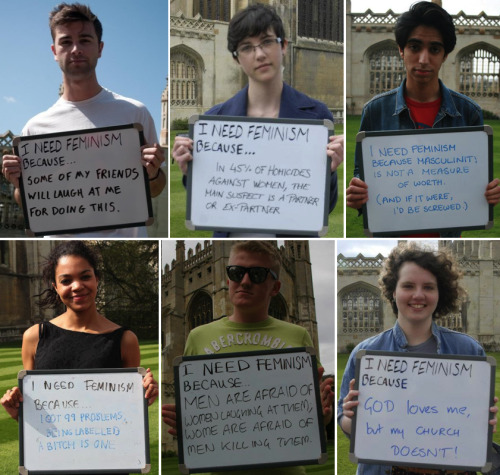But today I want to share my own personal notes after something that happened on Purdue's campus. Walking back from a theater performance, I was getting nervous because it was dark and (once I passed Heavilon) I was alone. To make things even worse, it was raining and I'd actually taken off my glasses because I could see better without them than I could with them getting rain-speckled (...which is to say, I couldn't see at all, but at least there were recognizable shapes).
As I got to a darker part of campus (across from one of the frat houses, which only aggravated my nervousness), I found myself walking behind two older men. They were obviously middle aged, and obviously (from their conversation) coming from the same show I'd just seen. All in all, they were pretty unthreatening. So, when it became obvious we were heading in the same direction, I confirmed that they were, in fact, heading to the same parking garage.
Me: "Oh, great! I really hate walking alone after dark."
Guy: "Of course. You can join us. Our wives (who were walking about a block behind, chatting) won't mind."
....and then he tried to put his arm around me.
I'd like to say he meant it as a protective gesture, but he very obviously didn't (his tone was highly suggestive, if only jokingly) and, regardless, it was a completely inappropriate move. I'd just expressed the fact that I was feeling vulnerable. The last thing I wanted was to be touched, and he was the last person who would have had the right.
Nothing happened. I say this to reassure friends and family, rather than to dismiss how much this bothered me. We walked to the garage in an awkward gaggle, I quickly got in my car, and I drove home. The end. But it's been two days and I can't forget it.
I also can't forget the fact that, as the rain started, I had the thought that "Well, I should be safer now, because no one is going to want to assault someone in this...."
....I need feminism, because I shouldn't have to tell someone to keep their hands to themselves when
- They are a stranger
- I am vulnerable
- I have blatantly said I feel worried about being victimized
I need feminism, because I shouldn't have to factor weather systems into my ability to walk safely.
I need feminism, because so many women are not as lucky as me and have had to deal with more than an inappropriate side-hug.
And I need feminism, because I'm sitting here, getting ready to post this, and wondering whether it will be seen as overreacting.
But I'm posting it anyway.

